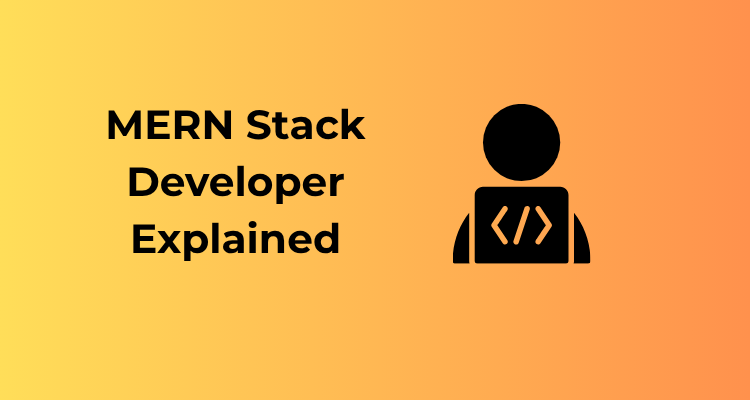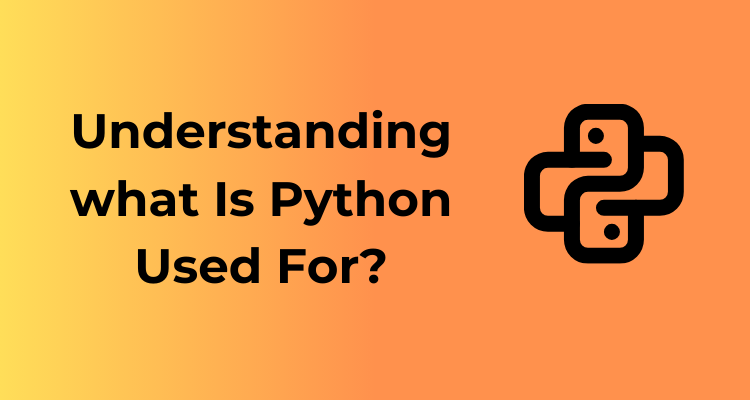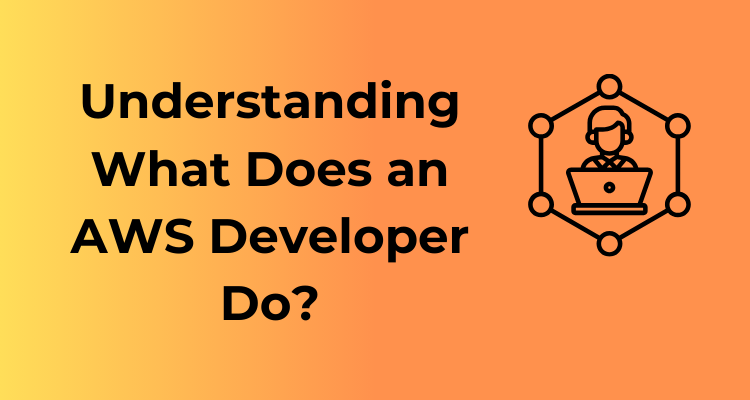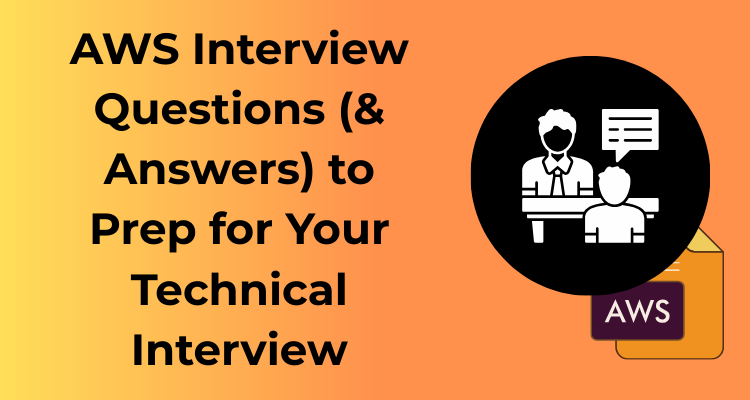Imagine the MERN stack developer as a Swiss Army knife of web development—versatile, well-equipped, and ready to tackle problems from all angles. But what exactly is a MERN stack developer? And how is this role unique from other types of developers? Let’s break it down in a way that’s clear and approachable.
First, the acronym itself: MERN stands for MongoDB, Express.js, React.js, and Node.js. Together, these technologies form a powerful, full-stack framework for developing modern web applications. But here’s the kicker: unlike other developers who might specialize in either the frontend (what users see) or the backend (what happens behind the scenes), a MERN stack developer works across both ends of the process. They are what we call full-stack developers—essentially a one-person team capable of crafting a seamless user experience while ensuring robust server-side functionality.
What Sets Them Apart?
At first glance, it might be tempting to think, “Oh, so a MERN stack developer is just a typical full-stack developer, right?” Well, not quite. Let’s explore the unique qualities they bring to the table.
- Technology-Specific Expertise: While full-stack developers may juggle various frameworks, a MERN stack developer is laser-focused on mastering the MERN stack tools. This specialization dramatically increases their efficiency and effectiveness in these technologies.
- JavaScript-Centric Development: One of the cool aspects of a MERN stack developer is that JavaScript is their playground. From backend servers using Node.js to frontend interfaces rendered by React.js, they live and breathe JavaScript. It gives them a unique advantage because they work with a single programming language, reducing any misfires caused by language-switching.
- End-to-End Knowledge: MERN developers understand how to connect every piece of the puzzle. Whether it’s setting up a database in MongoDB, crafting API endpoints with Express, building sleek UIs in React, or configuring the server-side with Node, they bring an end-to-end vision to the development process.
Why the MERN Stack is Popular
So, why has the MERN stack become such a big deal in the tech world? It’s all about efficiency and staying current. JavaScript is one of the most widely-used programming languages, and frameworks like React have revolutionized user interface design. When a single tech stack—MERN—can handle both the frontend and backend seamlessly, it becomes irresistible for startups and businesses looking to save time and resources.
For context, compare this to other developers who might work in separate domains (e.g., frontend-only, backend-only, or even another stack like MEAN—a cousin of MERN that uses Angular instead of React). While these roles are valuable, they lack the cohesive focus on JavaScript that makes MERN developers so uniquely productive.

A Dream for Companies and Developers Alike
Companies love MERN stack developers because they simplify collaboration—everything is built in one “language,” reducing confusion and speeding up workflows. For developers? This specialization often leads to more streamlined work and, frankly, more satisfying projects. After all, mastering a stack like MERN gives them the power to create beautiful, functional websites from the ground up. How cool is that?
The Essential Toolbox: Key Technologies Every MERN Stack Developer Must Understand
Alright, so you’re diving into the world of MERN stack development! Whether you’re just starting out or brushing up on your skills, it’s vital to understand the essential tools and technologies behind this powerful stack. Think of these as your superhero gadgets—they equip you to build robust, seamless, and modern web applications. Let’s break it down, one tech at a time!
1. MongoDB: Your NoSQL Database Sidekick
First up, MongoDB. This is where all the data from your application will live. Unlike traditional SQL databases, MongoDB is a powerful NoSQL database that stores data in flexible, JSON-like documents. Why does this matter? Well, this structure makes it perfect for handling the ever-changing requirements of modern web apps.
As a MERN stack developer, you’ll need to know how to:
- Create and manage collections and documents.
- Write queries to fetch or manipulate data.
- Optimize database design for scalability.
Pro tip: Familiarize yourself with MongoDB’s in-built aggregation framework—it’s a fantastic way to handle complex data analysis directly within the database.
2. Express.js: The Smooth Middleware
Now, let’s move to the “E” of MERN: Express.js. This is like the engine room of your application backend. Express is a minimalist web framework for Node.js, and it’s there to handle routes, middleware functions, and API logic. Fancy terms aside, it basically helps your frontend “talk” to your backend.
Here’s what to focus on:
- Creating RESTful APIs to streamline communication between the frontend and backend.
- Handling HTTP methods like GET, POST, PUT, and DELETE.
- Ensuring middleware integration for tasks like authentication, error handling, and data parsing.
Think of Express as the glue that holds your application together – simple yet immensely effective.
3. React: Your Dynamic Frontend Playground
Now for the star of the show for many developers: React. This JavaScript library from Facebook is designed for building dazzling user interfaces (UIs). It empowers you to create fast, interactive single-page applications (SPAs) that users love.
Important skills to hone here:
- Understanding React’s component-based architecture for reusability.
- Managing state with tools like the Context API or libraries like Redux.
- Building responsive UIs with a mix of modern CSS frameworks.
React is what makes the “Wow!” happen on your screen. From dropdowns to dynamically rendered content, it’s all React-powered magic.
4. Node.js: The Mighty Backend Framework
Finally, we have Node.js. This isn’t just JavaScript anymore – this is JavaScript supercharged! Node.js is the runtime environment that lets you run JS on the server side. As a MERN stack developer, this is your tool for building scalable, efficient backend logic.
Node.js stands out for its non-blocking, event-driven architecture, which is excellent for high-performance apps. Key things to focus on:
- Setting up a Node server and customizing it for your application needs.
- Using npm (Node Package Manager) to add libraries and tools to your project.
- Handling asynchronous operations using Promises, async/await, and callbacks.
How These Tools Work Together
Here’s the beauty of the MERN stack—the technologies are designed to work in harmony. You write your client-side code in React. That code sends requests to your backend (Express & Node) via APIs you design. Those requests interact with your database, MongoDB, to fetch or store data.
As a MERN developer, understanding how these components communicate is key to creating scalable, seamless apps.

Core Skills That Transform a Developer into a MERN Specialist
So, you’ve decided to dive into the world of MERN Stack development. That’s a fantastic choice! But the journey from a developer to becoming a MERN specialist isn’t just about learning tools—it’s about building a set of core skills that set you apart. Let’s talk about what these are and why they matter.
1. Mastering Each Piece of the MERN Puzzle
First off, MERN stands for MongoDB, Express.js, React, and Node.js. As a MERN specialist, you’ll need to have a strong grasp of each component:
- MongoDB: This is where your data lives. Knowing how to design efficient schemas, query data, and handle aggregation pipelines is crucial.
- Express.js: Middleware magic happens here. Understand how to create REST APIs, manage routing, and handle middleware for enhanced server functionality.
- React: The crown jewel of front-end development. Dive into hooks, state management (hint: libraries like Redux or Context API), and building dynamic, reusable components.
- Node.js: The backbone of the backend. You’ll need expertise in asynchronous programming, working with file systems, and ensuring scalable server-side applications.
Don’t just skim the surface; dig deep to truly excel in each of these areas.
2. Problem-Solving Skills: Debugging and Optimization
Great MERN developers see challenges as opportunities. Bugs? That’s your brain’s playground! Spend time improving your problem-solving skills by tackling real-world issues, breaking down errors, and optimizing code for performance. A MERN specialist doesn’t just make an app “work.” You make it efficient, smooth, and fast! Tools like Chrome DevTools for debugging React apps and monitoring server performance are your new best friends.
3. Full-Stack Design Thinking
As a MERN stack developer, you’re at the exciting intersection of frontend and backend. To move into specialist territory, however, you’ll need to develop an eye for both design and architecture. While designers might take the lead on visuals, understanding user experience (UX) and creating seamless flows between the frontend and backend is a major skill.
Ask yourself: “Does this app feel intuitive?”, “Are API endpoints logically structured?”, and “Is the data flow optimized?”. These are keys to standing out in the field.
4. Team Collaboration & Communication
Going solo is great for practice, but in the real world, you’ll likely be part of a team—designers, product managers, other developers, maybe even marketing folks. A MERN specialist knows how to communicate clearly, provide thoughtful feedback, and collaborate using tools like GitHub for version control or
JIRA/Trello for task management. It’s not just about your skills; it’s about how you contribute to the bigger picture.
5. Staying Current with Trends
The world of JavaScript and web development changes faster than you can say “document.getElementById”! To be a MERN specialist, you’ll want to stay updated with the latest technologies and practices. Stay curious. Is TypeScript taking over? What’s the buzz around React Server Components? Following blogs, forums, and attending local meetups can keep your skills fresh and competitive.
6. A Knack for Testing and Deployment
MERN specialists know that shipping error-free code is an art. Testing tools like Jest or Enzyme for React, or Mocha/Chai for backend, help ensure your app is rock solid. Deployment tools like Docker, Heroku, or Vercel take your application from “it works locally” to “it works everywhere.”
Day-to-Day Responsibilities of a MERN Stack Developer
Ever wondered what a typical day in the life of a MERN Stack developer actually looks like? Well, strap in, because we’re about to take a fun, detailed dive into their daily grind! Whether you’re aspiring to become one or simply curious about their world, this breakdown will give you a clear view of the responsibilities that form the backbone of their work routine.
Breaking Down the Daily Tasks
A MERN Stack developer wears many hats throughout their day. They’re masters at juggling front-end, back-end, database, and server-related tasks. Let’s zoom in a bit:
- Collaborating with Teams: One of the first tasks of the day typically involves syncing up with team members. This often happens during quick morning meetings or stand-ups where developers discuss what they’re working on, challenges they’re facing, and what they aim to accomplish that day. Clear communication and teamwork are crucial in this collaborative environment.
- Writing and Reviewing Code: Coding is the bread and butter of any developer, and MERN Stack developers are no exception. They spend a significant chunk of their day writing clean, efficient code using technologies like React for the front-end and Node.js for the back-end. They also review each other’s code, providing feedback to ensure everything works seamlessly and remains maintainable over time.
- Building User-Focused Front-Ends: Using React.js, MERN Stack developers work to create stunning, interactive interfaces that users love. Their goal? Make sure that the user experience (UX) is smooth, intuitive, and engaging. After all, you don’t want users scratching their heads or clicking away!
- Managing the Back-End Logic: Behind the scenes, they use Node.js and Express.js to handle the server-side logic. Think of it as the control center that processes user requests, runs commands, and keeps the application up and running. Keeping things secure, fast, and reliable is all in a day’s work for these pros.
- Database Work: MongoDB is where all the app’s precious data lives, and MERN developers ensure it stays well-organized and optimized. They create schemas, perform CRUD (Create, Read, Update, Delete) operations, and ensure that the data behind the scenes is as efficient as the app’s performance.
- Debugging and Fixing Bugs: No developer is a stranger to bugs, and MERN Stack pros are quick on their toes when troubleshooting errors. Debugging is a daily ritual—whether it’s fixing a misbehaving API or resolving compatibility issues between the front-end and the database.
Why Staying Updated Matters
Technology evolves at lightning speed, so part of a MERN developer’s job includes studying up on new trends, tools, and techniques. This could mean watching online tutorials, testing out new libraries, or absorbing fresh industry news. Staying curious and adaptive is part of what makes them such indispensable team members.
Tips to Thrive in These Responsibilities
- Time Management is Key: With so many moving parts, organize your workload using tools like Trello, Jira, or even a trusty to-do list.
- Communicate Often: Don’t hesitate to speak up if you’re stuck or need guidance. Good teamwork makes all the difference in overcoming challenges.
- Prioritize Learning: Aim to spend a little time daily enhancing your skills—it’ll keep your work fresh and your career moving forward.
Growth Opportunities: Exploring Industries Where MERN Stack Developers Shine
Hey there! So, you’re curious about where being a MERN Stack developer can take you, right? Awesome choice! The MERN (MongoDB, Express.js, React, Node.js) stack is one of the most powerful and versatile toolkits out there. But you know what’s even cooler? This skillset opens doors to a wide variety of industries. Let’s explore some exciting fields where MERN stack developers are currently making a big impact—and could absolutely crush it in the future too.
1. E-commerce and Retail
In the world of online shopping, user experience is everything. Think about how seamless browsing, adding to cart, and making purchases feels on your favorite platforms. Many of these experiences are built using React on the frontend and Node.js on the backend. Couple that with MongoDB for handling vast product databases, and you’ve got a winning recipe! E-commerce platforms like Amazon, Shopify, and countless niche businesses are all driven by robust codebases where MERN stack developers play a critical role.
2. Healthcare Technology
Healthcare is undergoing a huge digital transformation. From patient management systems to telemedicine apps, MERN developers are helping build HIPAA-compliant platforms that make healthcare accessible and efficient. Imagine working on a React-powered telehealth app, or backend systems for managing medical records—where your code directly helps save lives. Now that’s impactful!
3. Fintech (Financial Technology)
Fintech startups love the MERN stack for its speed and scalability. Whether it’s a mobile wallet application, stock trading platform, or even cryptocurrency exchanges, MERN makes building real-time, secure systems easier. Companies in banking, insurance, and finance regularly look for MERN pros who can craft cutting-edge solutions while ensuring top-notch security.
4. Education and E-Learning Platforms
The pandemic catapulted the e-learning industry into massive relevance, and it’s not slowing down anytime soon. Platforms for virtual classrooms, content management, and gamified learning systems heavily rely on MERN’s flexibility. If you’re passionate about making education accessible globally, this industry might be your playground.
5. Entertainment and Media Streaming
Streaming services (like Netflix and Spotify) are always looking to enhance their platforms. From frontend interfaces that keep users engaged to backend systems managing large-scale data, MERN developers are often the creative engineers behind it all. Plus, working in this industry could mean contributing to fun and highly visible projects—a solid career win!
6. Startups and Bootstrapped Ventures
Startups love MERN for its “all-in-one” efficiency. When budgets and resources are limited, having one developer who can do it all (frontend, backend, and databases) is a major advantage. Whether it’s developing MVPs (Minimum Viable Products) or scaling existing prototypes, you’ll have endless opportunities to grow professionally by wearing many hats here.
7. Real Estate and PropTech
Ever noticed how cool property search apps and websites have become? From interactive home tours to advanced search filters, these platforms often use MERN technologies to provide an excellent user experience. Real estate firms and PropTech startups value developers who can handle complex functionality and massive user data.
Why This Matters for Your Career
- **Diverse Opportunities**: MERN stack developers can work across multiple sectors, meaning your career need not be confined to one niche.
- **Adaptable Skills**: Whether it’s building user-friendly apps or high-performing databases, these skills are always in demand, no matter the industry.
- **Long-Term Value**: Industries like healthcare, fintech, and education are growing steadily, ensuring job security for MERN developers.
Pathway to Success: Building a Strong Portfolio and Standing Out in Recruitments
If you’re dreaming of a successful career as a MERN stack developer, let me tell you one thing – creating a strong portfolio and making an impression during recruitments are your golden tickets! Whether you’re just starting out or looking to scale new heights, here’s how you can pave your way to success.
Why Your Portfolio is Your Superpower
Think of your portfolio as your digital résumé – a visual representation of your skills and expertise tailored for potential employers. It’s not just about listing your knowledge of MongoDB, Express.js, React, and Node.js; it’s about demonstrating how you use these tools to craft incredible applications!
Here’s how to make your portfolio shine:
- Showcase Real Projects: Include a mix of personal and collaborative projects that highlight your ability to build user-friendly, efficient, and innovative applications.
- Highlight Problem-Solving Skills: Briefly describe the challenges you tackled in each project. Recruiters love developers who can solve real-world issues.
- Prioritize Quality Over Quantity: A few well-crafted projects, fully functional and polished, will impress more than a long list of incomplete applications.
- Provide Context: Add descriptions explaining the purpose of each project, technologies used, and the impact it had (if applicable).
Top Tips to Stand Out During Recruitments
Recruitments can feel nerve-wracking, right? But don’t worry, here’s how to become the candidate that hiring managers remember:
- Learn to Communicate Your Knowledge: Even with stellar technical abilities, recruiters are keen to gauge your communication skills. Practice explaining complex technical concepts in simple terms.
- Brush Up on Practical Challenges: Expect coding tests or live challenges during interviews. Practice solving problems on platforms like LeetCode or HackerRank to stay sharp.
- Know the Job Description In and Out: Tailor your interview approach based on the company’s product, mission, and tools they use. This shows genuine interest and preparation.
- Leverage Open Source Contributions: Contributing to open source projects can demonstrate your ability to collaborate and give back to the developer community – a big bonus point.
- Build a Professional Digital Presence: Platforms like GitHub, LinkedIn, or even a personal website can amplify your visibility. Ensure they are up-to-date and reflect your best work.
Things to Keep in Mind
As much as you focus on technical skills, remember, employers value soft skills too. Being a team player, showing enthusiasm for learning, and staying curious about the ever-evolving tech landscape can set you apart from other candidates.
Finally, don’t forget to actively seek feedback. Whether it’s from peers, mentors, or interviewers (even after rejection), it can provide insights that help you improve and succeed next time.
Future Prospects: How the Role of MERN Stack Developers Evolve in the Tech Industry
Let’s talk about the ever-evolving world of technology and how it reshapes the role of MERN Stack Developers. If you’re already riding the MERN wave or planning to dive in, you’ll be thrilled to know that you’re part of an exciting journey filled with growth, innovation, and impact. The future for MERN Stack Developers looks bright, and here’s why:
1. The Rise of Full-Stack Development
As businesses increasingly seek developers who can handle both front-end and back-end tasks with finesse, full-stack development is becoming more mainstream. The MERN stack – comprising MongoDB, Express.js, React, and Node.js – empowers developers to manage the complete development lifecycle of web applications, making this skillset highly in demand.
What’s the takeaway here? Companies are moving toward leaner teams that can deliver end-to-end solutions, and MERN Stack Developers are particularly well-positioned to take on these roles.
2. A Perfect Fit for Modern Web Applications
The MERN stack is designed for creating highly scalable, fast, and dynamic web applications. This makes it an ideal choice for industries like e-commerce, healthcare technology, EdTech, and more. Businesses across these sectors are consistently on the lookout for developers skilled in cutting-edge frameworks to build user-friendly digital experiences.
Imagine being the developer behind the next revolutionary online marketplace or a life-saving medical app. Exciting, right?
3. MERN and Emerging Technologies
Technology is advancing, and so is the role of a MERN Stack Developer. You may start seeing intersections between MERN stack development and emerging fields such as Artificial Intelligence (AI), Internet of Things (IoT), and even blockchain technology. Here’s how:
- AI Integration: Developers are combining React-based interfaces with AI models to offer personalized services like chatbots. MERN developers can leverage their skills to bring AI into seamless user experiences.
- IoT: With Node.js, MERN developers can handle real-time data that powers IoT applications, from smart homes to connected vehicles.
- Blockchain: MERN stack’s backend tools can be used to support decentralized apps (dApps), making blockchain technology more accessible and user-centric.
4. Remote Work and Freelancing Domination
The global shift toward remote work has further opened up opportunities for MERN Developers. Businesses can now hire top talent from anywhere in the world, and skilled MERN stack professionals are well-suited for freelancing, consulting, and remote positions. Platforms like Upwork and Fiverr are teeming with clients ready to pay handsomely for full-stack developers who can deliver quality work.
5. Continuous Upskilling: Staying Ahead of the Curve
The tech world loves buzzwords like Next.js, serverless architectures, and Progressive Web Apps (PWAs). Staying adaptable and learning complementary tools within the MERN ecosystem will help you stay ahead of the pack. Invest in online courses, participate in open-source projects, and keep experimenting with new technologies.









